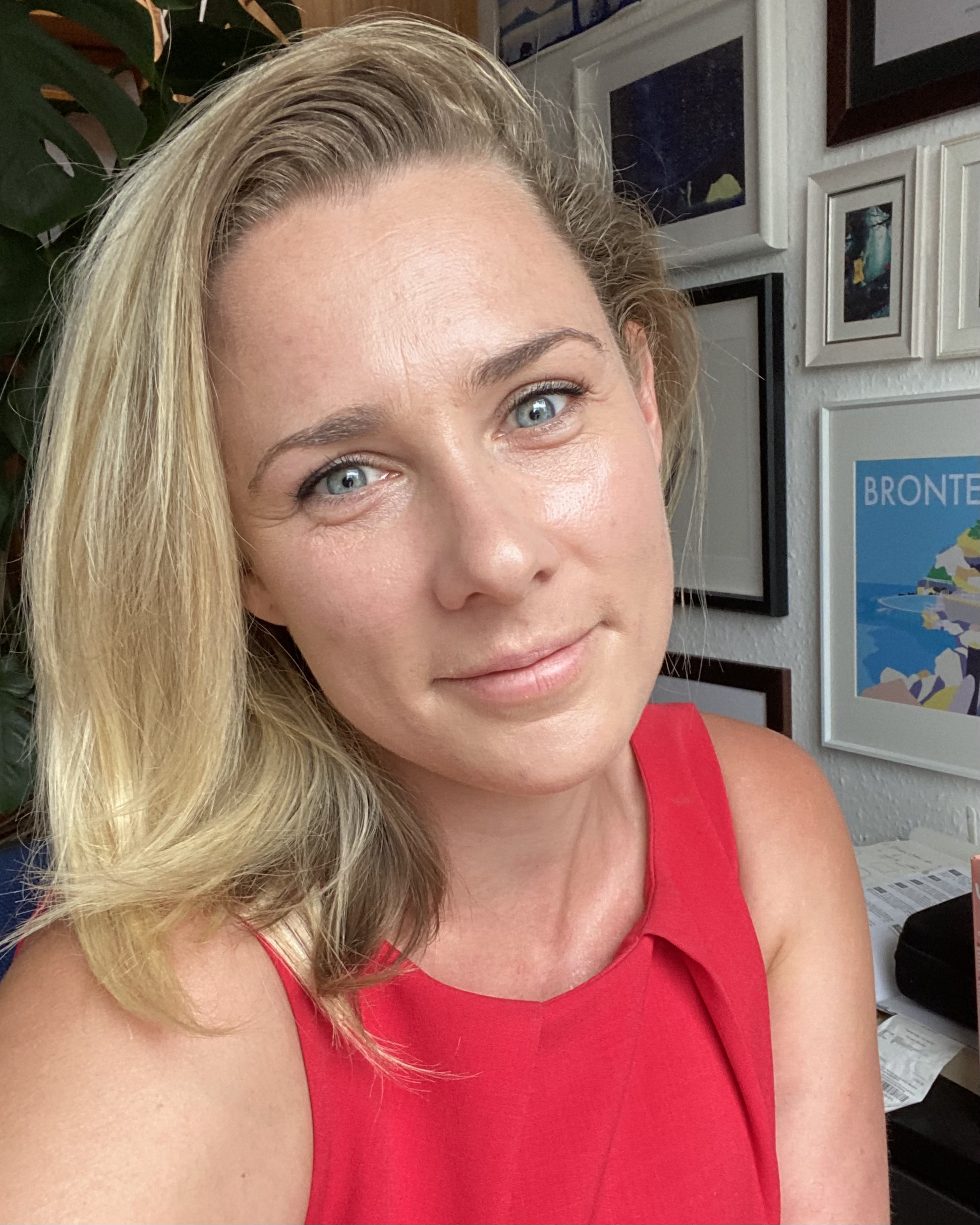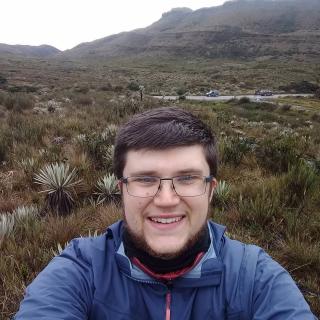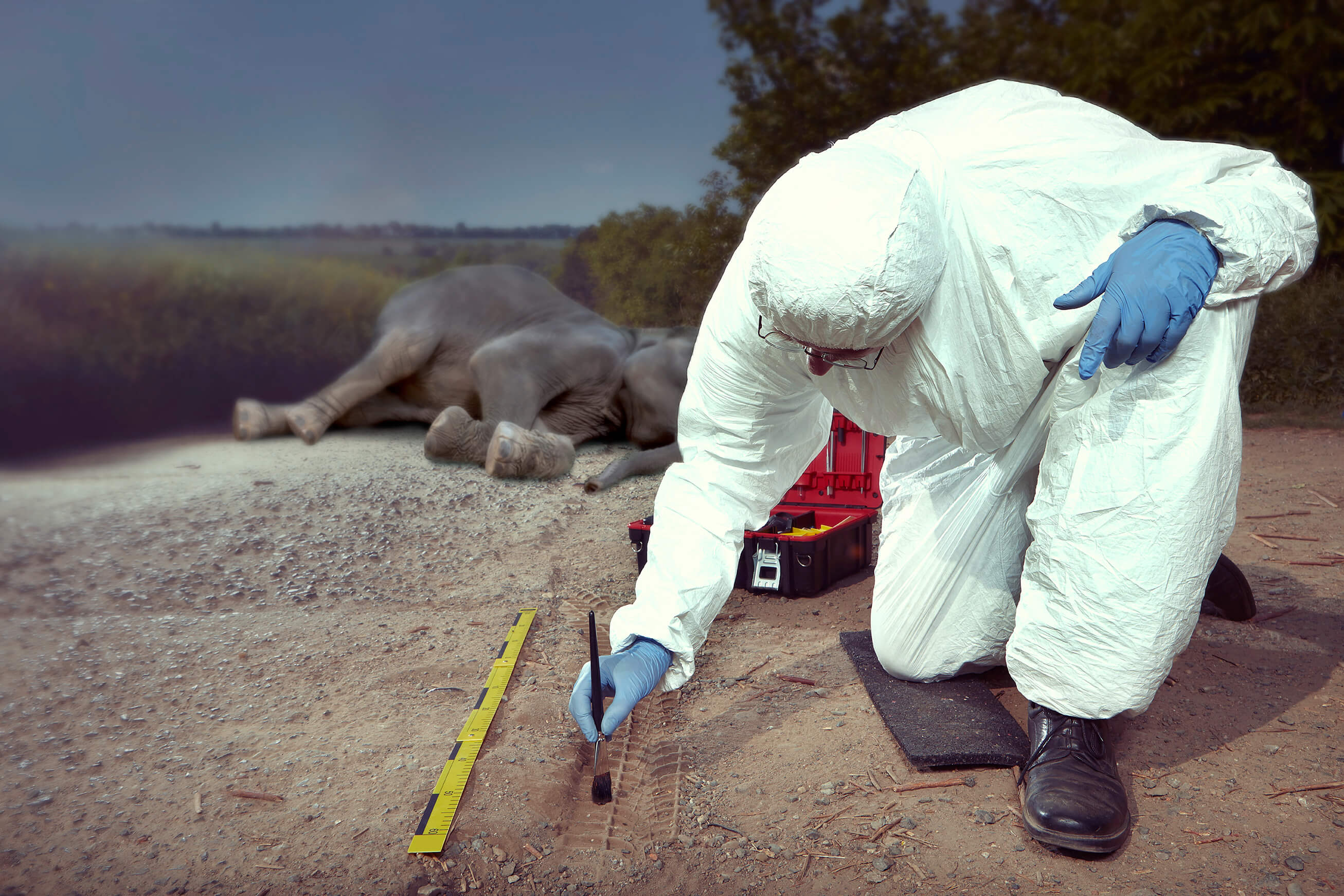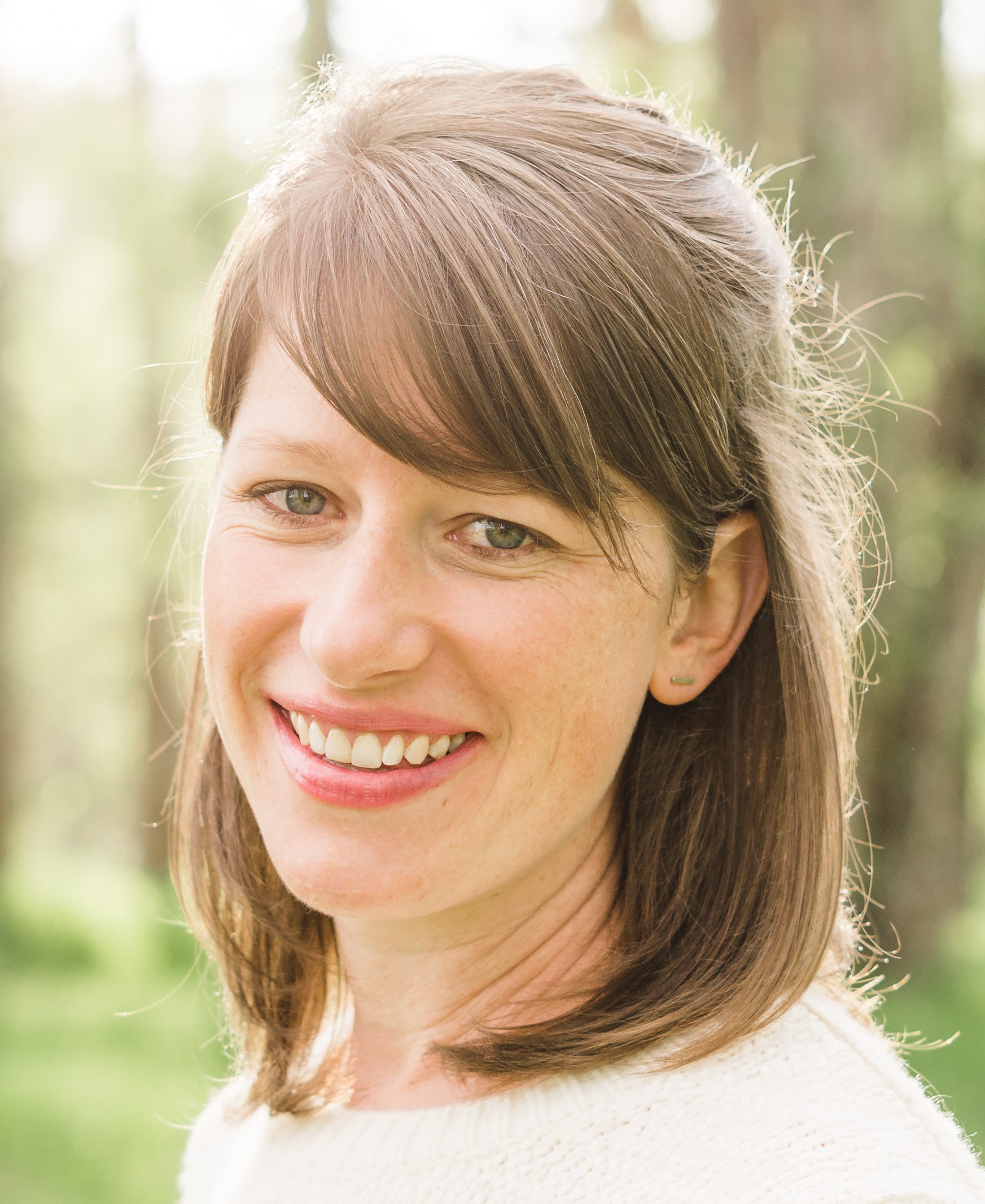With new technologies revolutionizing data collection, wildlife researchers are becoming increasingly able to collect data at much higher volumes than ever before. Now we are facing the challenges of putting this information to use, bringing the science of big data into the conservation arena. With the help of machine learning tools, this area holds immense potential for conservation practices. The applications range from online trafficking alerts to species-specific early warning systems to efficient movement and biodiversity monitoring and beyond.
However, the process of building effective machine learning tools depends upon large amounts of standardized training data, and conservationists currently lack an established system for standardization. How to best develop such a system and incentivize data sharing are questions at the forefront of this work. There are currently multiple AI-based conservation initiatives, including Wildlife Insights and WildBook, that are pioneering applications on this front.
This group is the perfect place to ask all your AI-related questions, no matter your skill level or previous familiarity! You'll find resources, meet other members with similar questions and experts who can answer them, and engage in exciting collaborative opportunities together.
Just getting started with AI in conservation? Check out our introduction tutorial, How Do I Train My First Machine Learning Model? with Daniel Situnayake, and our Virtual Meetup on Big Data. If you're coming from the more technical side of AI/ML, Sara Beery runs an AI for Conservation slack channel that might be of interest. Message her for an invite.
Header Image: Dr Claire Burke / @CBurkeSci

Explore the Basics: AI
Understanding the possibilities for incorporating new technology into your work can feel overwhelming. With so many tools available, so many resources to keep up with, and so many innovative projects happening around the world and in our community, it's easy to lose sight of how and why these new technologies matter, and how they can be practically applied to your projects.
Machine learning has huge potential in conservation tech, and its applications are growing every day! But the tradeoff of that potential is a big learning curve - or so it seems to those starting out with this powerful tool!
To help you explore the potential of AI (and prepare for some of our upcoming AI-themed events!), we've compiled simple, key resources, conversations, and videos to highlight the possibilities:
Three Resources for Beginners:
- Everything I know about Machine Learning and Camera Traps, Dan Morris | Resource library, camera traps, machine learning
- Using Computer Vision to Protect Endangered Species, Kasim Rafiq | Machine learning, data analysis, big cats
- Resource: WildID | WildID
Three Forum Threads for Beginners:
- I made an open-source tool to help you sort camera trap images | Petar Gyurov, Camera Traps
- Batch / Automated Cloud Processing | Chris Nicolas, Acoustic Monitoring
- Looking for help with camera trapping for Jaguars: Software for species ID and database building | Carmina Gutierrez, AI for Conservation
Three Tutorials for Beginners:
- How do I get started using machine learning for my camera traps? | Sara Beery, Tech Tutors
- How do I train my first machine learning model? | Daniel Situnayake, Tech Tutors
- Big Data in Conservation | Dave Thau, Dan Morris, Sarah Davidson, Virtual Meetups
Want to know more about AI, or have your specific machine learning questions answered by experts in the WILDLABS community? Make sure you join the conversation in our AI for Conservation group!
- @jdomingo
- | He/Him
I am an enthusiast for nature, technology development, biodiversity conservation and nature inspired design. I posses a technical and environmental background, and I am looking to explore the potential that advance technology has to empower the field of nature conservation.

- 0 Resources
- 9 Discussions
- 2 Groups
- @och3k
- | she/her
- 0 Resources
- 0 Discussions
- 2 Groups
CIBIO-InBio
I am a PhD student working on wolf bioacoustics. I am combining Audiomoths and Deep Learning into more efficient wolf monitoring protocols. My main field of interest is population ecology.
- 0 Resources
- 0 Discussions
- 3 Groups
- @nadyam
- | she/her
Michigan State University
Conservation geneticist at Michigan State University. Co-founder of iCatch. Solving problems in monitoring, traceability, and enforcement through rapid species identification tech.
- 0 Resources
- 3 Discussions
- 6 Groups
Passionate advocate for nature and experienced communicator, looking to explore opportunities to leverage technology in wildlife and marine conservation
- 0 Resources
- 0 Discussions
- 7 Groups
- @nlubcker
- | Dr
Results-Driven R&D Project Manager | Data scientist | I'm a versatile professional with 10 years of global experience in conservation and research.
- 0 Resources
- 1 Discussions
- 7 Groups
- @mariahmeek
- | she/her
Michigan State University
Dr. Mariah Meek is the PI and co-founder of iCatch, an Associate Professor at Michigan State University, and the Director of Research at The Wilderness Society.
- 0 Resources
- 0 Discussions
- 5 Groups
- @Alex.S
- | She/Her
MSc Marine Biologist and Data Scientist, Co-Founder and CSO & CTO of Galene Pathways
- 0 Resources
- 0 Discussions
- 8 Groups
PhD candidate studying the ethics of tech in human-animal interactions.
- 0 Resources
- 1 Discussions
- 3 Groups
- @Hansa
- | He/Him
- 0 Resources
- 0 Discussions
- 6 Groups
- @valeria
- | she/her
Studio Pixel
AI integration architect, AI product manager. I've built the front-end of this website 😁
- 0 Resources
- 3 Discussions
- 13 Groups
Stellenbosch University & The Cape Leopard Trust

- 0 Resources
- 22 Discussions
- 6 Groups
Interesting thought piece from Mark Minevitch (AI for Good) et al. on the promise of AI and other ICT innovation to deliver on climate challenges, existing ICT sector emissions - and the three types of carbon lock-in...
8 August 2022
Press Release for International Tiger Day – July 29th, 2022: For the first time ever, wild tigers and their prey have been detected by AI-powered, cryptic cameras that transmit the images to the cell phones and...
5 August 2022
Article
A gentle introduction to the exciting field of embedded machine learning.
5 August 2022
Article
Ceres Tag sends just in time alerts and GPS location to have the power to track and trace.
22 July 2022
The Earth Species Project (ESP) is a nonprofit organization dedicated to decoding animal communication and translating non-human language.
15 July 2022
This WhaleSeeker article discusses how reliable distribution data depends on accurate labelling from survey images, and how AI can improve this process.
13 July 2022
The Pl@ntNet team is looking for a data scientist with strong skills in python and pytorch development. Pl@ntNet is a citizen observatory of plant biodiversity & research platform at the crossroads of data science,...
7 July 2022
7 July 2022
Rainforest Connection has multiple engineering positions that will suppor their work developing acoustic monitoring devices.
16 June 2022
June 2025
event
July 2025
October 2025
event
event
December 2020
June 2020
March 2020
73 Products
Recently updated products
16 Products
Recently updated products
| Description | Activity | Replies | Groups | Updated |
|---|---|---|---|---|
| If you are considering EduGenie for your school assignments, it is useful to read the detailed review on the website. The article at https://nocramming.com/edugenie-review... |
|
Acoustics, AI for Conservation, Marine Conservation | 1 minute 2 seconds ago | |
| MIT has this Moo Deng-based fun challenge! More seriously it relates to AI and human-nature interaction. I imagine people on Wildlabs would... |
|
AI for Conservation | 1 day ago | |
| Hi Ethan, It's indeed a competitive area. My advice for you (and anybody else seeking a PhD supervisor)...Do background research on each individual potential supervisor and always... |
|
Early Career, AI for Conservation, Animal Movement, Climate Change | 4 days 9 hours ago | |
| Hi Nick,At Wildlife.ai, from the other side of the world, we would be happy to chat with you. PM if interested Victor |
|
AI for Conservation, Emerging Tech | 2 days 11 hours ago | |
| Hi everyone,What should we share or demo about Software Quality Assurance? Alex Saunders and I, the two Software QA people at Wildlife Protection Solutions (WPS) are going to... |
|
Software Development, AI for Conservation, Open Source Solutions | 4 days 4 hours ago | |
| My name is Frank Short and I am a PhD Candidate at Boston University in Biological Anthropology. I am currently doing fieldwork in Indonesia using machine-learning powered passive... |
|
Acoustics, AI for Conservation, Animal Movement, Data management and processing tools, Early Career, Emerging Tech, Ethics of Conservation Tech, Protected Area Management Tools, Software Development | 2 weeks 1 day ago | |
| This looks like a great application, thank you! I wonder if they are planning to run this study in future years. |
|
AI for Conservation | 2 weeks 3 days ago | |
|
|
Latin America Community, Acoustics, AI for Conservation, Camera Traps, Drones, Early Career | 2 weeks 6 days ago | ||
| @LukeD, I am looping in @Kamalama997 from the TRAPPER team who is working on porting MegaDetector and other models to RPi with the AI HAT+. Kamil will have more specific questions. |
|
AI for Conservation, Camera Traps | 3 weeks ago | |
| Super happy to finally have Animal Detect ready for people to use. We are open for any feedback and hope to bring more convenient tools :) |
|
AI for Conservation | 3 weeks ago | |
| Hi Ștefan! In my current case, I am trying to detect and count Arctic fox pups. Unfortunately, Arctic fox does not seem to be included in the training data of SpeciesNet but... |
+16
|
AI for Conservation, Camera Traps | 3 weeks 1 day ago | |
| Interesting. Thanks for the explanation. Nice to hear your passion showing through. |
|
AI for Conservation, Camera Traps, Data management and processing tools, Open Source Solutions, Software Development | 3 weeks 3 days ago |












































